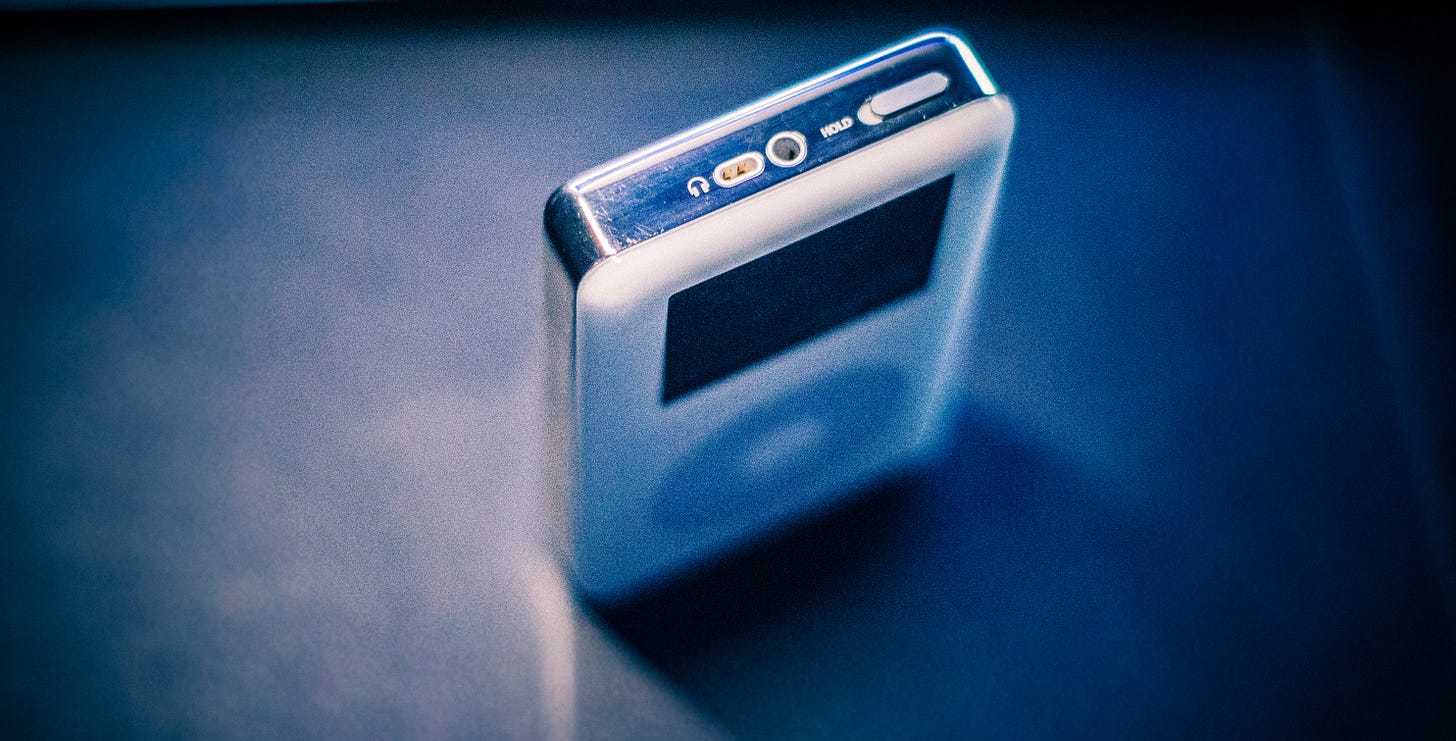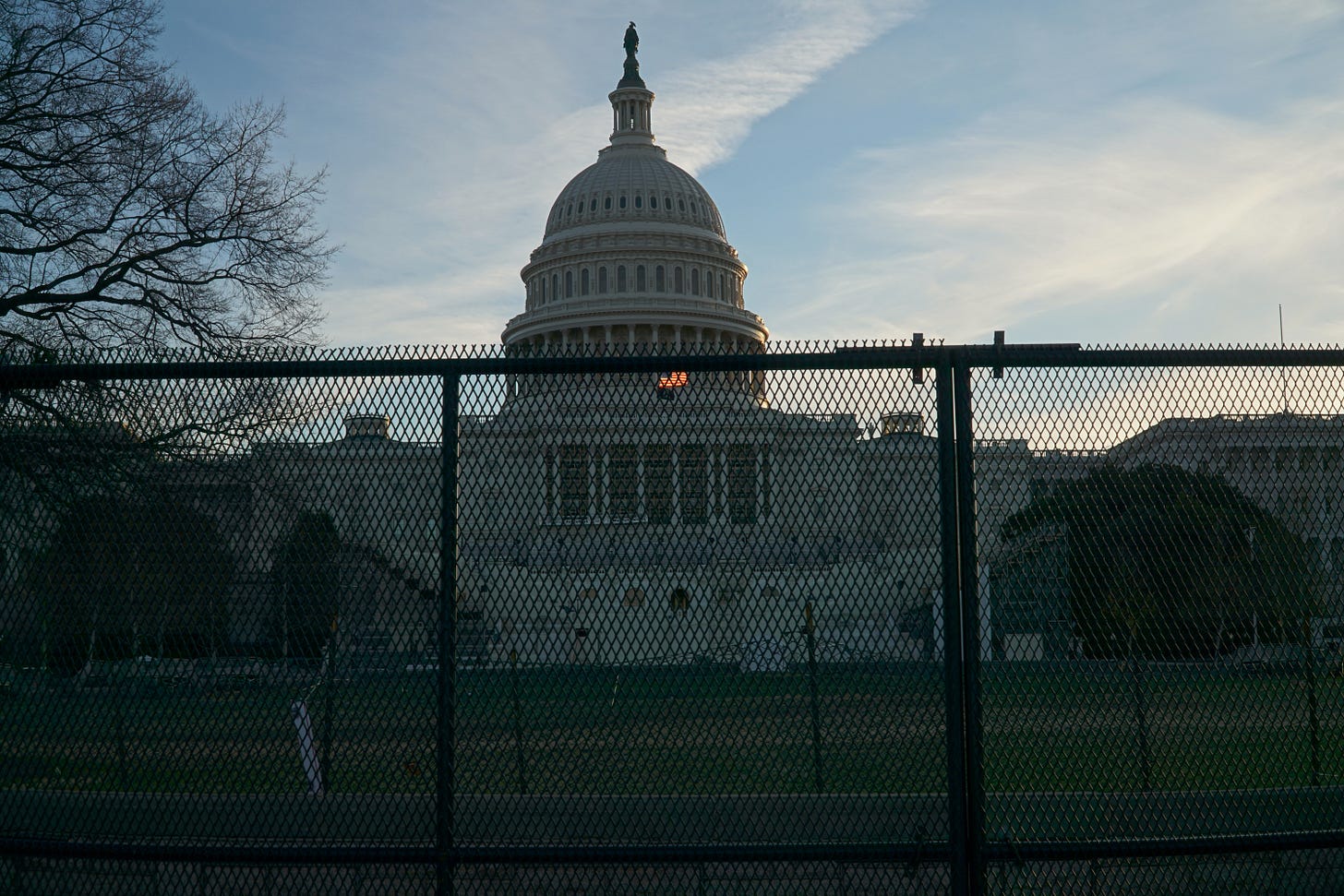Did the DMCA Destroy Music (or Save It)?
Spotify Sells Off Distrokid, Coachella Grows Bigger, Congress Could Fix Musician's Collective Bargaining

When it comes to monetizing music on the internet, the bedrock law upon which all policies are based is the landmark 1998 Digital Millennium Copyright Act (DMCA). Signed into law by Bill Clinton just six weeks after a judge ruled that the world’s first mass consumer MP3 player, the Diamond Multimedia's Rio PMP300, could go on sale despite legal protests from the RIAA, the DMCA codified laws governing copyright-protected material online and set the basis for the “notice-and-takedown” policy that in the subsequent 23-years has managed to leave musicians under-protected, while simultaneously frustrating creators of user-generated content (a category of online citizen that didn’t exist in 1998).
The winners of DMCA were without a doubt the tech conglomerates that grew larger than nation-states on the back of such content, although their impact could hardly have been predicted in 1998. But with more than two decades in the rearview mirror, Rolling Stone has published a pretty epic piece on the history that considers the DMCA’s long-ranging impact while reporting on some of the proposed changes to the laws (both here and abroad) that have the potential to reconfigure who gets paid and how when it comes to online music.
We HIGHLY recommend reading the entire article, but here some a few of the top takeaways:
On providing safe-harbor for tech companies.
The most impactful part for the music world is Section 512, which established safe-harbor provisions that insulated digital service providers from copyright-infringement liability. In 1998, this made decent sense, as the onus of copyright liability could crush companies before they got started.
On policing content.
Sniffing out those illegal uploads was like playing a torturous game of Whac-A-Mole, a metaphor that comes up constantly when artists, labels, and advocates vent about the frustrating realities of the DMCA. It’s an expensive, tedious task, and while major labels and some of the bigger indies have the resources to play (not that they like it), the vast majority of working artists do not.
On YouTube’s particular situation in the DMCA debate.
User-based YouTube pays artists significantly less than Spotify and Apple Music. That’s certainly a product of its vast market power, but also, some argue, a consequence of the DMCA, which treats the site as a totally different beast. The disparity between the popularity of music on YouTube, the revenue it rakes in from ads, and the money artists make, even has a name in the music business: the “value gap.”
On limited access to fingerprinting technology that could be deployed more broadly to fight infringement.
All of these are regularly used to issue takedowns and monetize user-generated content — but the DMCA hasn’t specified this tech as a standard technical measure, and none are easily available to the average rights holder.
On Twitch’s particular refusal to comply with DMCA standards for licensing music.
Twitch does have public-performance licenses — the same kind that bars and coffee shops need — which pay out to publishers and songwriters. But that’s it. And Twitch seems uninterested in acquiring the usual (and more expensive) sync licenses generally required when music and video are paired together.
On the introduction of new EU laws that could signify coming change.
“The fundamental thing [Article 17] does,” Phelan says, “is what it should do: shift the responsibility off users’ shoulders and onto the services. It says services must act and be diligent. The more these platforms become licensed, the more the problem goes away.”
On YouTube’s interest in reform.
“Our goal,” the YouTube spokesperson says, “is to find a fair remuneration that allows for content creators, including musicians, to continue making great content. Because we have a really good model of monetization and consumption and it’s fueled by great content that they make. We want them to be successful, financially, cause they’ll make more.”
On misinformation that promises to overwhelm any reform process.
When news spread that Congress’ $2 trillion omnibus package would include a bill classifying illegal streams as felonies, a rash of misfiring critics claimed that anyone caught playing unlicensed music on Twitch streams or YouTube videos, even accidentally, would risk jail time.
Want to collaborate with The Cadence? Contact us.
TAKEAWAYS
Salient statements from this week’s music news.
1. Here’s Exactly What Streaming Services Want to Pay Songwriters
Both sides in the upcoming DSPs vs. Songwriters fight in the U.S. Copyright Royalty Board have now weighed in.
Takeaway: Before these filings were public, the National Music Publishers’ Association claimed that the music streaming services were trying to cut the amount of money they pay songwriters in the US to the “lowest royalty rates in history”.

2. Spotify Quietly Sells Two-Thirds of Its Distrokid Stake for $167 Million.
The streaming giant’s interest in “disintermediating” music distribution seems to have gone the way of the Apple Touch Bar, despite huge financial gains in the sector.
Takeaway: With a continued competitive onslaught from the likes of Apple Music, Amazon Music Unlimited, and YouTube Music, Spotify’s divestiture makes sense if distribution isn’t the competitive wedge required to remain number one.

3. Goldenvoice Renews Coachella Land Lease Through 2050
The year-round operation of the Empire Polo Field means Coachella will have time and space to grow even bigger and bolder.
Takeaway: As a part of the pact, Goldenvoice will take over year-round operations of the venue. As well as add two additional 3-day events to the site.
4. New Bill in Congress Would Empower Indie Artists to Negotiate for Better Streaming Rates
An offensive misreading of anti-trust laws have kept “freelance” musicians from working together to negotiate.
Takeaway: Would allow independent artists to band together to negotiate with streaming platforms and make antitrust laws no longer an obstacle to those provisions, as well as grant artists the ability to collectively refuse to license their music to any dominant online distribution platform that doesn’t pay market rates.

5. Whole Lotta Tok: Led Zeppelin Officially Join TikTok
Rock & roll’s boomer generation continues to fight for relevance and refuses to be forgotten ala Elvis.
Takeaway: Zeppelin joining TikTok comes after Jimmy Page recently admitted he doesn't think Led Zeppelin would exist today because of the immediacy of the online world.



